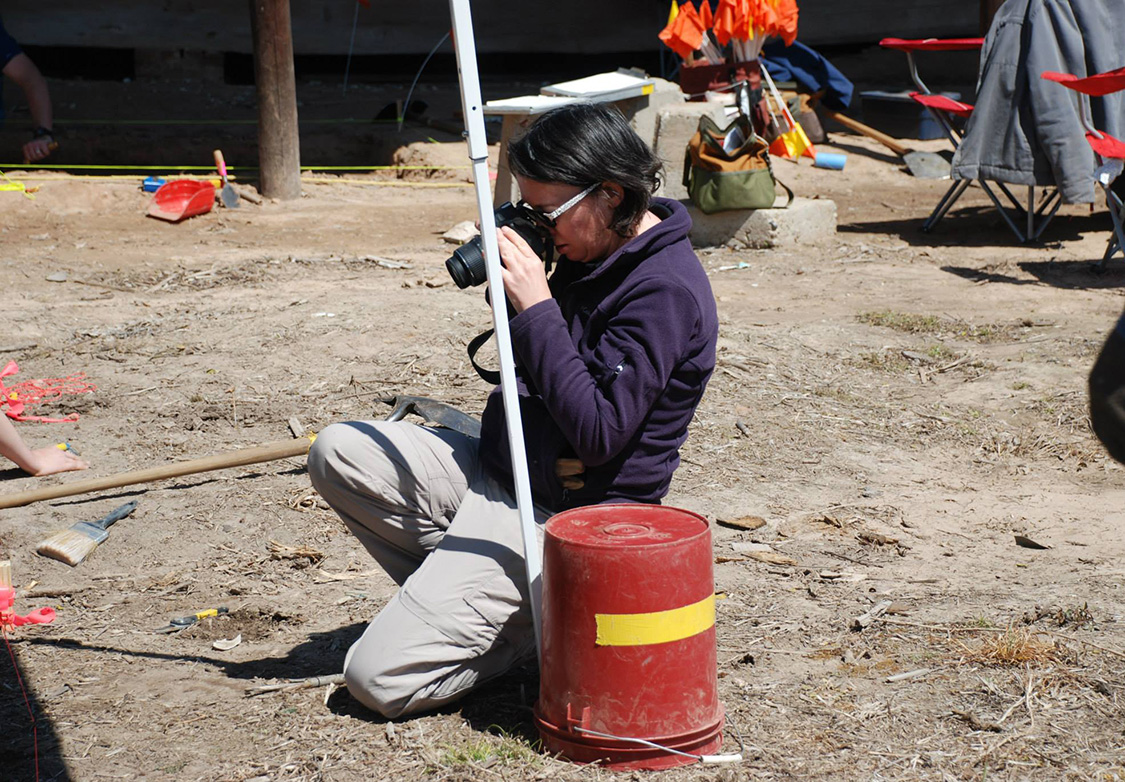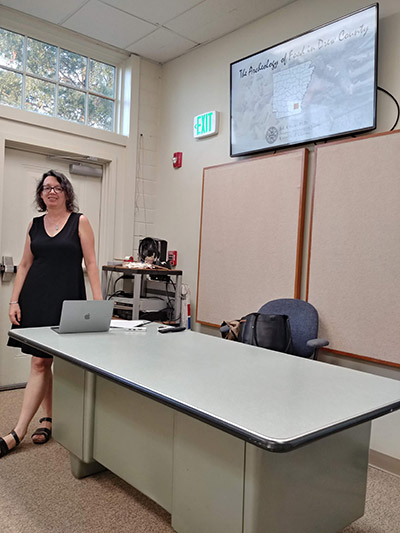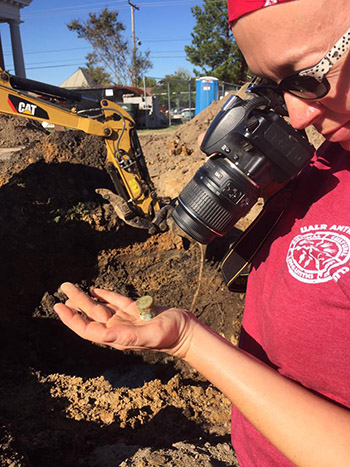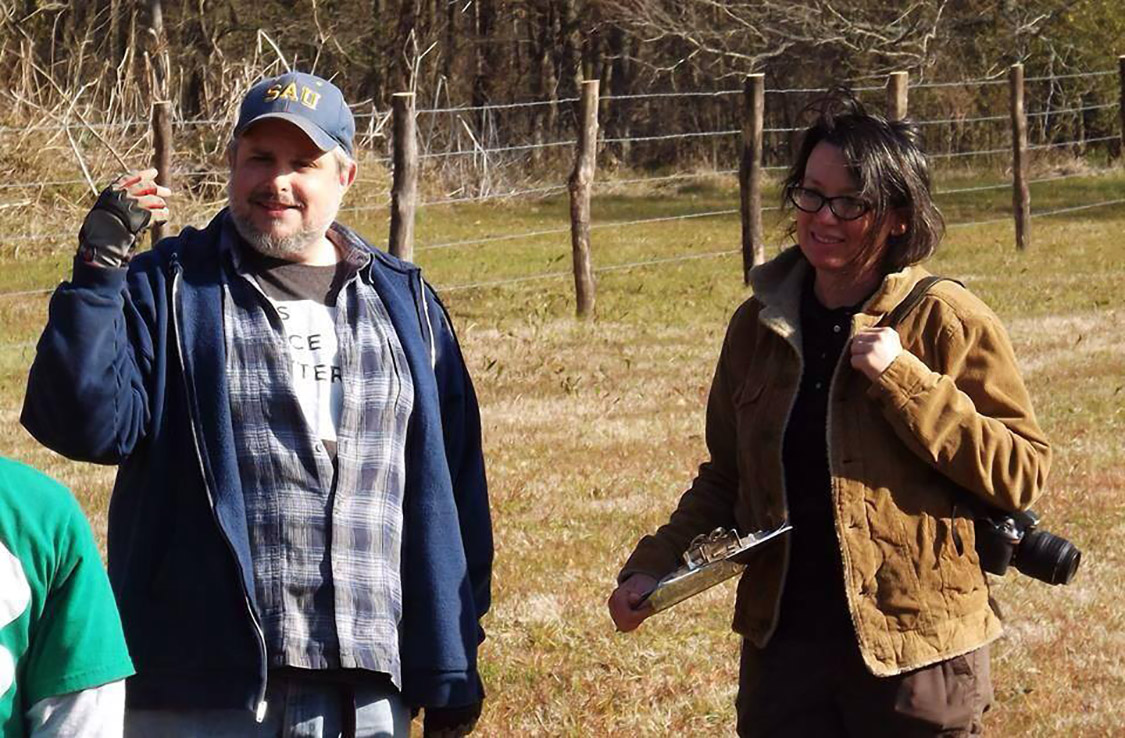

Dr. Jodi Barnes is starting the new year with a change in venue. She will be missed not only as a valuable colleague talented at interpretation of archeological data for the public and with fantastic grant writing skills, but also as a friend and mentor. We wish her all the best for her new endeavors in South Carolina.
Dr. Barnes joined the Survey in 2013 as Station Archeologist at the ARAS research station on the University of Arkansas at Monticello campus. Since that time she has contributed to the Survey’s mission in many impactful, original, and significant ways, emphasizing the diverse and complex nature of the past through her work on topics ranging from slavery to internment to gender and health in historic Arkansas.
She served the professional archeology community nationally, regionally, and locally as a member of the Society for Historical Archaeology (SHA) Board of Directors and on the SHA Gender and Minority Affairs Committee; as President of Preserve Arkansas; and on the board of the Drew County Museum Commission. Dr. Barnes taught classes at the University of Arkansas at Monticello, expanding their course offerings in anthropology and providing interactive experiences for students.
 One of the first projects Dr. Barnes worked on, and continued to work on throughout her time in Arkansas was the Hollywood Plantation (3DR26). With this project Dr. Barnes showed the best of what public archeology can be, hosting two Spring Break digs and developing an activity book and workshop From Field to Report: Archeology at the Hollywood Plantation. Her extensive work on this long-term project will be published by the Arkansas Archeological Survey as part of our Research Series in the future.
One of the first projects Dr. Barnes worked on, and continued to work on throughout her time in Arkansas was the Hollywood Plantation (3DR26). With this project Dr. Barnes showed the best of what public archeology can be, hosting two Spring Break digs and developing an activity book and workshop From Field to Report: Archeology at the Hollywood Plantation. Her extensive work on this long-term project will be published by the Arkansas Archeological Survey as part of our Research Series in the future.
Her work in public archeology has been wide-ranging and innovative, taking many different forms and reaching audiences from all walks of life. She developed a public program highlighting the Japanese American internment camps in Arkansas that included artistic performances (Bend), workshops, virtual field trips, talks, and site tours. Her public archeology work related to the African diaspora included experiential learning with the Beyond the Big House program. Dr. Barnes’ diligent effort made the Gathering, Gardening, and Agriculture 5th Grade Social Science Curriculum, published by the Arkansas Archeological Survey, possible.
Dr. Barnes will remain an example of how to use archeology as a vehicle for shedding light on often overlooked or marginalized people, whose history has real-world impacts on people’s lives today. All the best to Dr. Barnes as she continues to use archeology as a vehicle for interpreting the past and improving the future.

